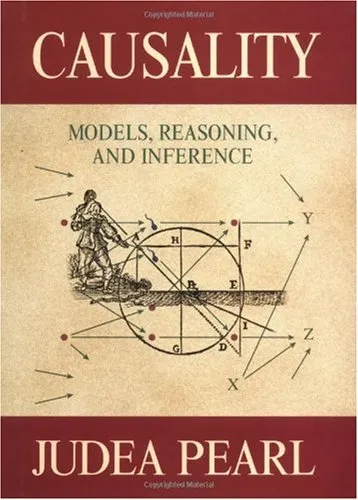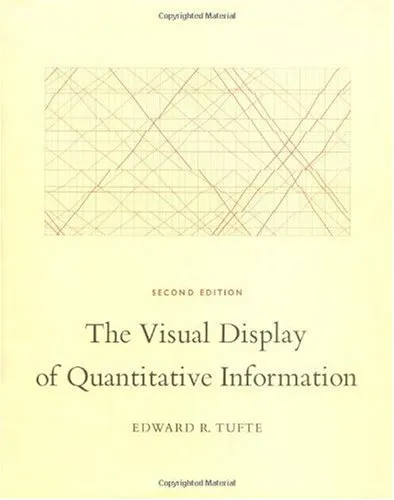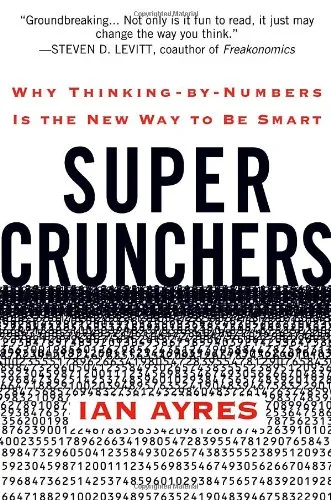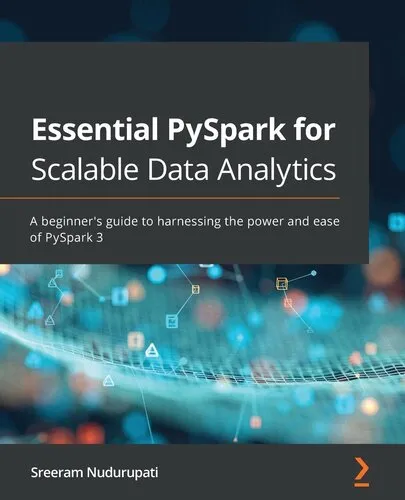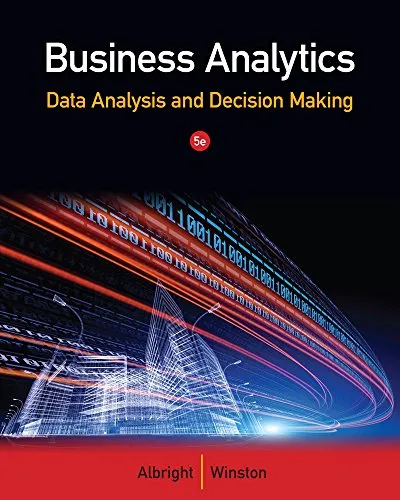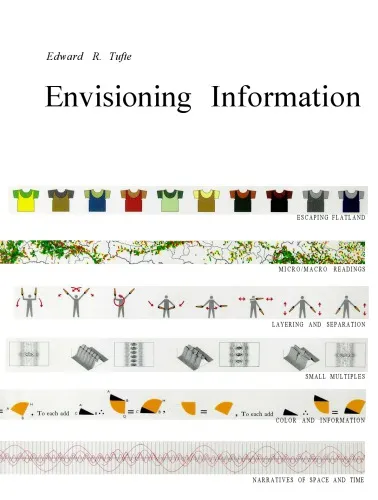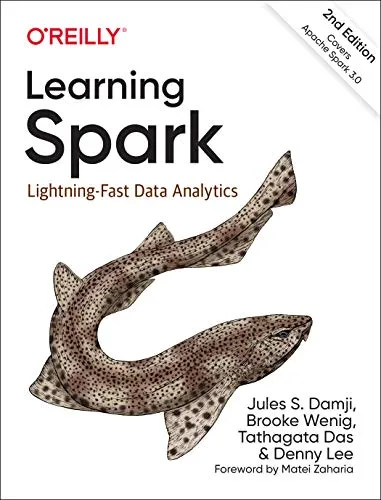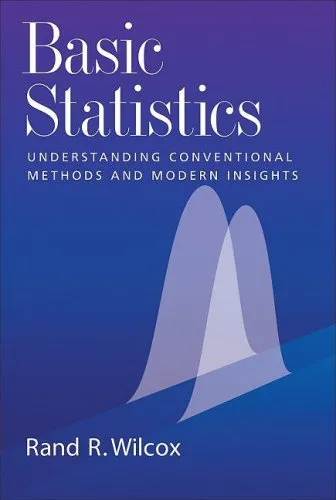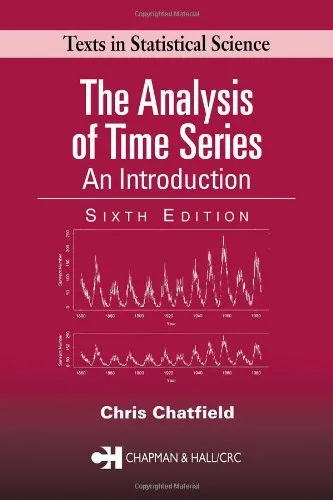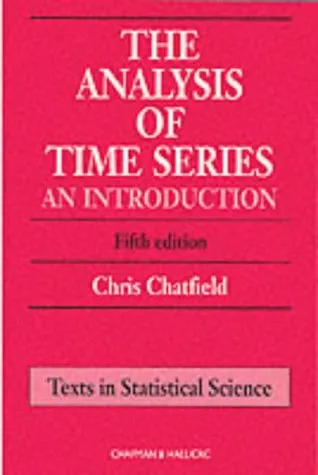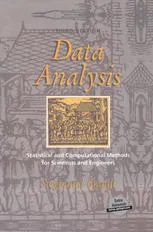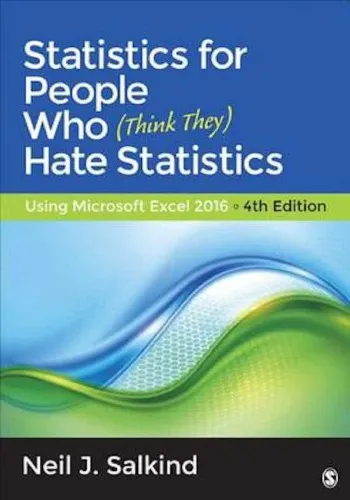Causality: Models, Reasoning, and Inference
4.7
Reviews from our users

You Can Ask your questions from this book's AI after Login
Each download or ask from book AI costs 2 points. To earn more free points, please visit the Points Guide Page and complete some valuable actions.Related Refrences:
Introduction to 'Causality: Models, Reasoning, and Inference'
Written by Judea Pearl, a pioneer in the field of artificial intelligence and causal reasoning, 'Causality: Models, Reasoning, and Inference' provides a comprehensive framework for understanding, modeling, and reasoning about causality. This book has revolutionized the way scholars, scientists, and mathematicians think about cause-and-effect relationships, offering a solid theoretical infrastructure and practical tools to model these relationships. Whether you are a student, researcher, or professional in disciplines like AI, statistics, epidemiology, or social sciences, this landmark text equips you with the foundational knowledge for grappling with complex causal concepts.
Detailed Summary of the Book
'Causality: Models, Reasoning, and Inference' delves deep into one of the most fundamental yet challenging topics in science: understanding causation. Unlike correlation, which is a statistical association between two variables, causation goes beyond the data to explain how one event can directly influence another. The book is divided into methodical parts that guide you from the basics to advanced topics in causal inference.
The first section introduces structural causal models (SCMs) and explains how they serve as the cornerstone for causal reasoning. Using intuitive diagrams known as causal graphs, Pearl breaks down the mechanisms by which variables interact in the real world. He introduces the concepts of "causal effects," "confounding," and "intervention," providing vivid examples to illustrate abstract ideas.
Subsequent sections delve into methods for deriving causal information from observational data and discuss how to answer counterfactual questions—questions about what might have happened under different hypothetical scenarios. These ideas empower readers to differentiate causation from mere correlation, bringing clarity to complex systems with hidden dependencies.
The book not only discusses theoretical frameworks but also introduces specific algorithms, like the "do-calculus," to identify causal effects in multivariate systems. Additionally, it tackles challenging problems of overfitting, latent variables, and missing data, making it a versatile, interdisciplinary toolkit for causal analysis.
Key Takeaways
- Causation and correlation are fundamentally distinct concepts, and Pearl's framework provides tools to distinguish between the two.
- Structural causal models (SCMs) are essential for formally representing and reasoning about causal relationships.
- Causal effects can be estimated even in non-experimental settings using intervention-based reasoning.
- Counterfactual reasoning allows scientists to ask "what if" questions, enabling deeper insights into causal structures and decision-making processes.
- The "do-calculus" algorithm is a milestone in causal inference—it deciphers causal effects from observed data step-by-step.
- Understanding causality is crucial in fields ranging from artificial intelligence to epidemiology, economics, and beyond.
Famous Quotes from the Book
"Causality is not merely a statistical problem—it is the cornerstone of scientific reasoning and decision-making."
"The distinction between association and causation is essential for understanding the mechanisms underlying our observations."
"Counterfactuals do not belong to the realm of fantasy; they are the building blocks of scientific reasoning."
Why This Book Matters
'Causality: Models, Reasoning, and Inference' has transcended disciplinary boundaries, sparking a paradigm shift across sciences, social studies, and even artificial intelligence. It provides a unified framework to understand cause-and-effect relationships in a world increasingly driven by data. Pearl's insights have enabled researchers to break free from the limitations of traditional statistical models and explore deeper questions about why things happen.
With its emphasis on rigorous modeling and inference, the book equips readers with the ability to answer some of the most challenging questions in science and society: What policies lead to better outcomes? How do we interpret complex systems where experimental data is unavailable? Why did event X occur, and how might it have been prevented? By offering clear concepts, formal proofs, and practical examples, Judea Pearl empowers readers to tackle such problems with precision and confidence.
Importantly, the book has laid the groundwork for advancements in artificial intelligence, where understanding causality is crucial for building robust, explainable, and trustworthy systems. It has had a profound impact on machine learning, especially in areas like reinforcement learning, fairness in AI, and causal discovery.
Whether you are a data scientist, a policymaker, or simply a curious thinker, understanding causality is vital for making informed, evidence-based decisions, and this book is the definitive guide to mastering this complex but rewarding discipline.
Free Direct Download
You Can Download this book after Login
Accessing books through legal platforms and public libraries not only supports the rights of authors and publishers but also contributes to the sustainability of reading culture. Before downloading, please take a moment to consider these options.
Find this book on other platforms:
WorldCat helps you find books in libraries worldwide.
See ratings, reviews, and discussions on Goodreads.
Find and buy rare or used books on AbeBooks.
1389
بازدید4.7
امتیاز0
نظر98%
رضایتReviews:
4.7
Based on 0 users review
Questions & Answers
Ask questions about this book or help others by answering
No questions yet. Be the first to ask!
